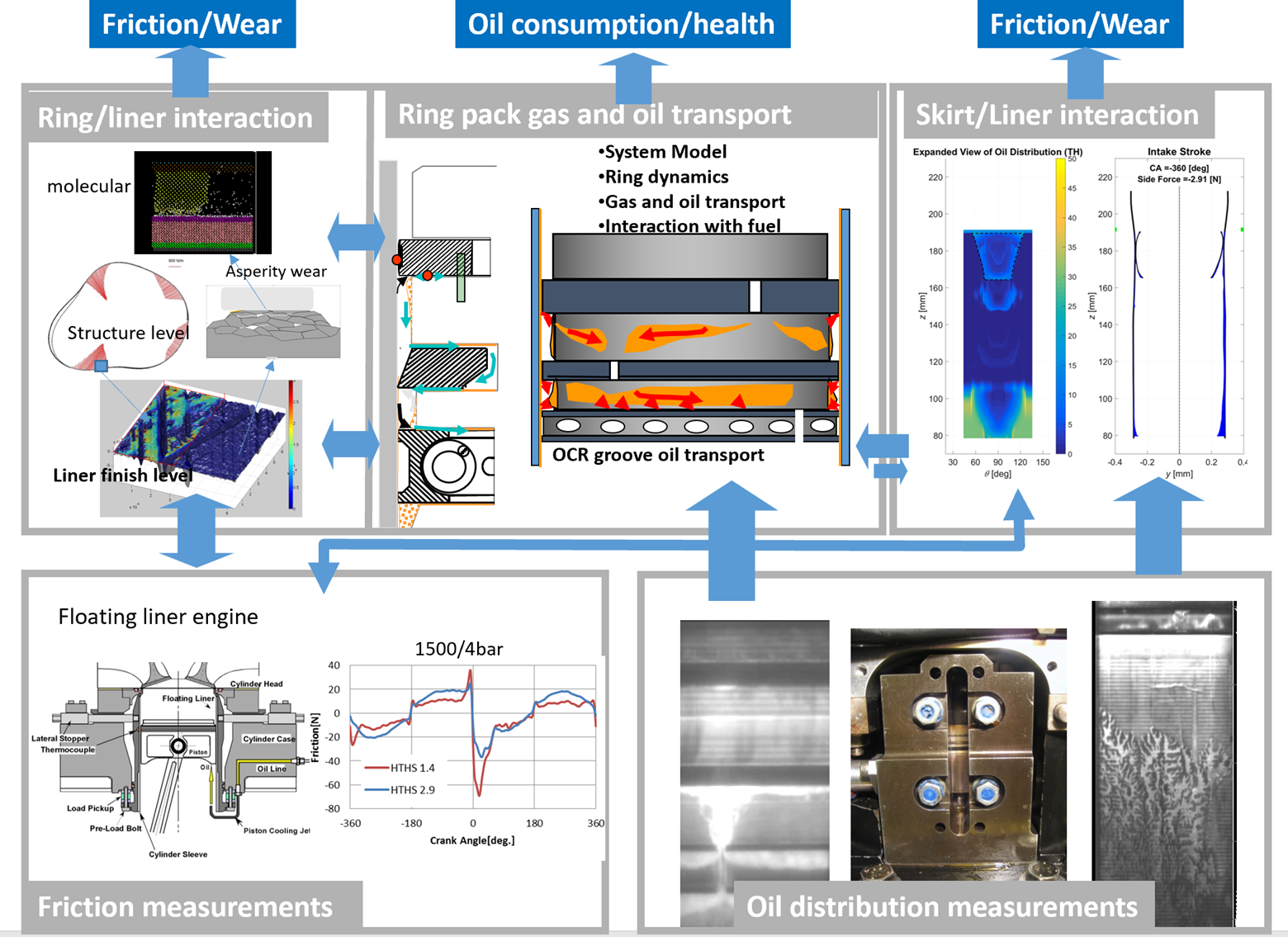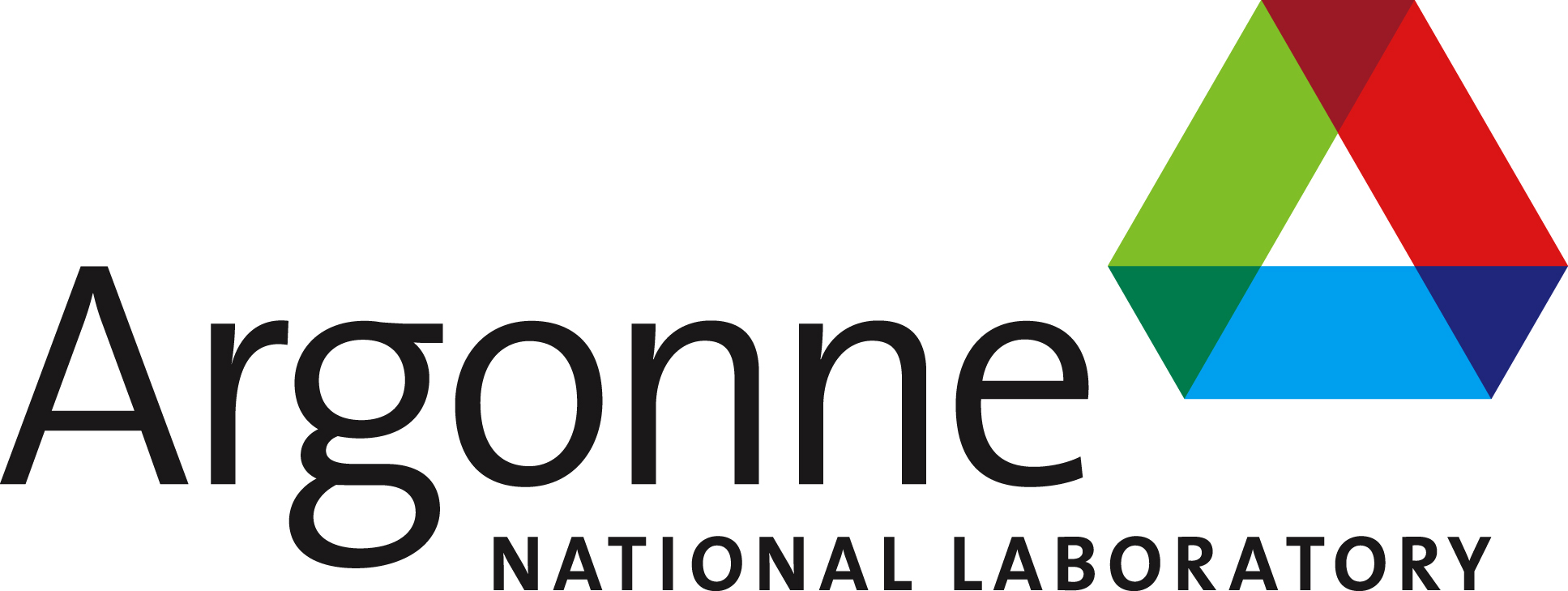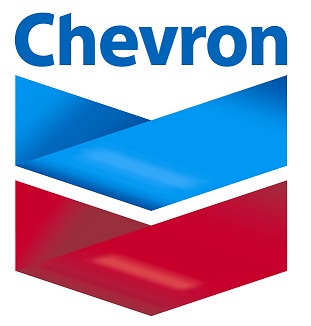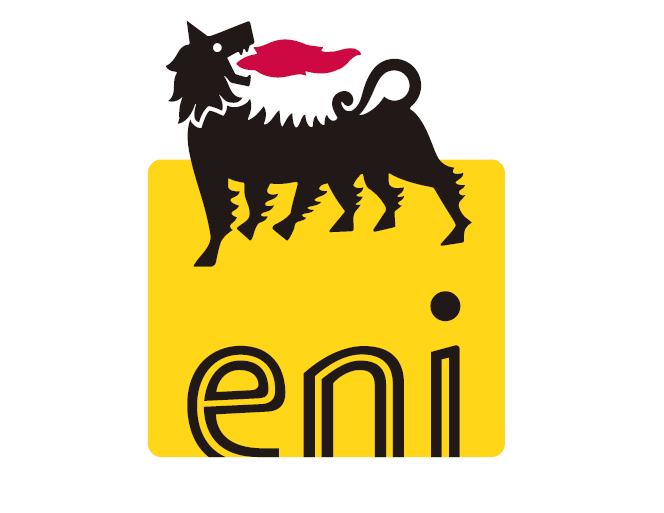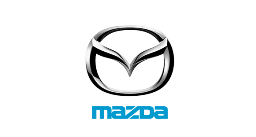Research
The main goal of our group is to develop knowledge, tools, and design strategy for the optimization of the power cylinder system/unit (PCU) in internal combustion engines. The power cylinder system, known as the heart of the engines, is composed with piston, piston pin, piston rings, and cylinder liner, interacting with combustion gas and lubricant. The system first needs to survive and then to fulfill the sealing function of gas and lubricant over the lifetime of the engines. Lubricating oil consumption (LOC) not only affects service intervals of the engines but also is a direct source of particle emissions and a main contributor to deterioration of aftertreatment systems. Moreover, the friction from the PCU is a main source of the mechanical loss in engines and the LOC can cause lubricating oil ignition in natural gas and hydrogen engines and preignition in gasoline engines. Due to the complexity of the system and lack of complete understanding, there is still no standard design and tremendous engineering efforts are needed each time to develop the PCU for a new engine.
Over the past 25 years, our group has exclusively focused on developing understanding and models for the PCU with the help of visualization experiment and friction measurement as well as close collaboration with major manufacturers of engines, engine components, and lubricant. Our models directly benefitted our industry partners in saving development cost, reducing emissions, and improving the efficiency of the engines. Our modeling and experimental methodology contributed to the advancement of general knowledge in engine tribology and emission controls. While continuing our current effort, we are employing data science and machine learning (ML) in model development and in understanding test and experimental results. All our new effort is centered in developing a Digital Twin for the PCU, which requires simple and direct representations of complex 3D structure and fluids processes. Our visualization and floating liner engines will be adapted to hydrogen engines to help us understand more specifically the mechanisms involved for the lubricant to enter the regions that may cause ignition.
Current and Past Sponsors
Research Program Details
